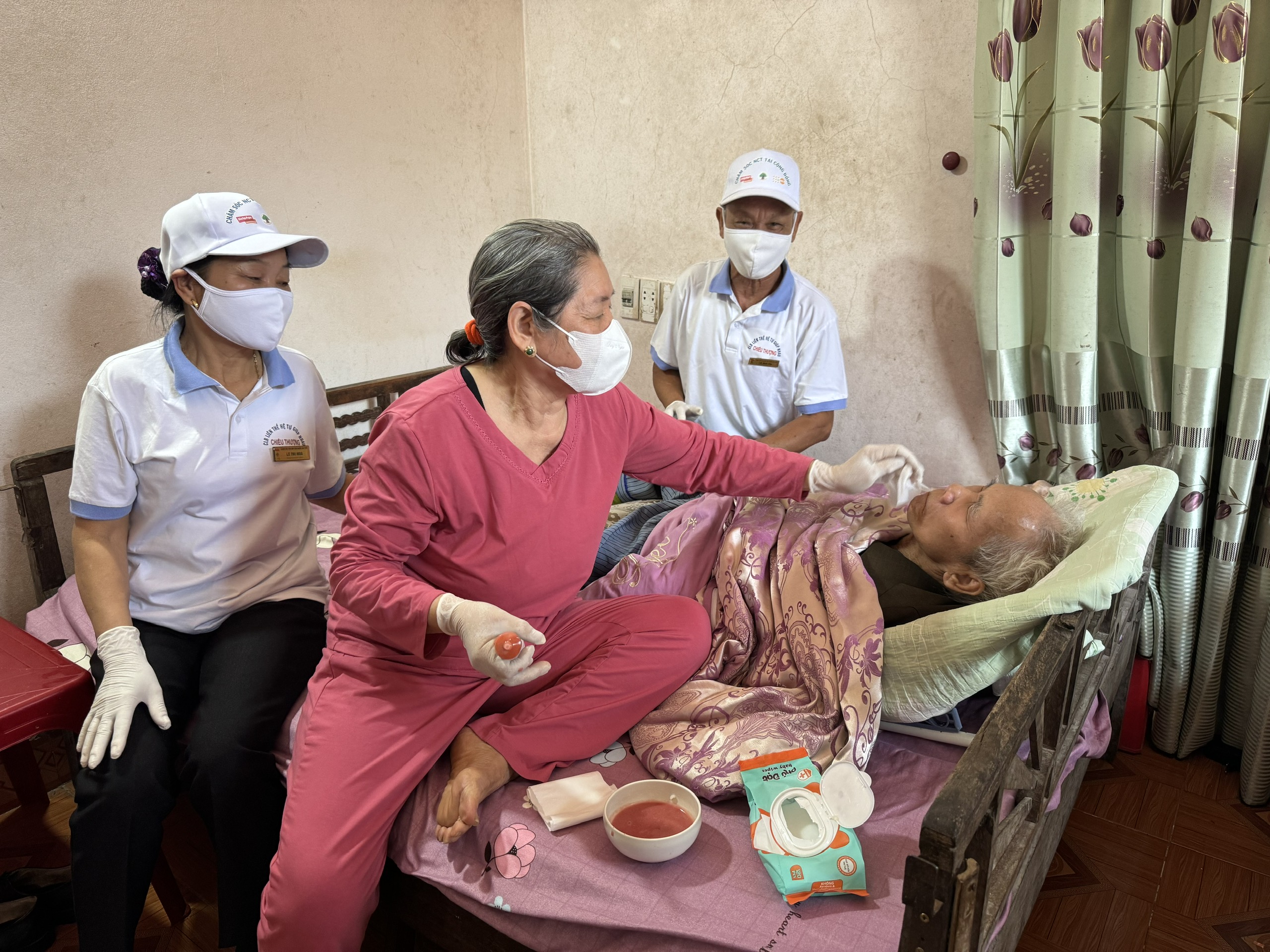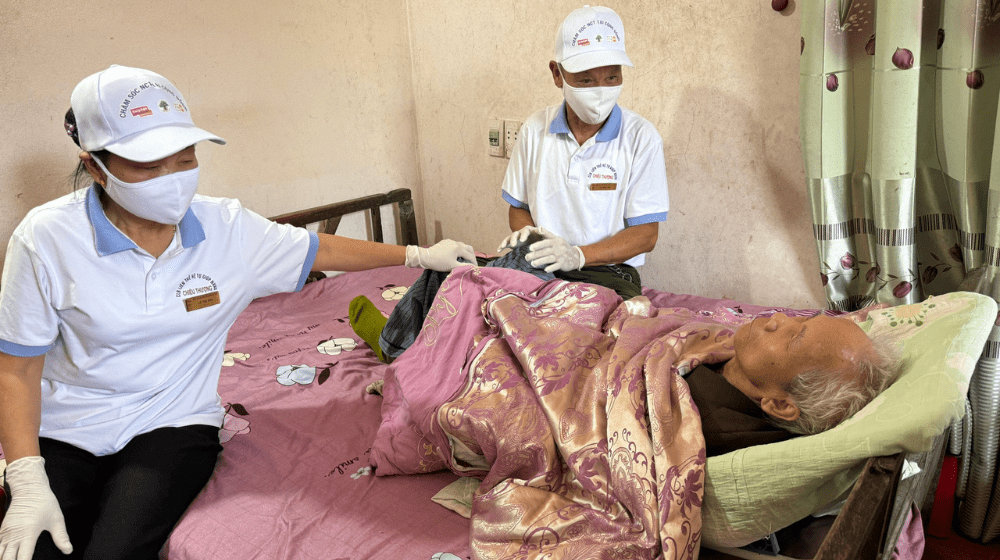62 older people in the province of Thanh Hoa, Viet Nam are now able to provide better long-term care to their elderly friends and neighbours after being equipped with basic knowledge and skills on caring for ageing populations by a UNFPA-funded pilot project.
“Previously, we sometimes came to our neighbour, a Mr. Nguyen Chi Hoe who is 80 years old, because we wanted to provide spiritual support to him and his family” said Mr. Le Duy An (74) and Mrs. Le Thi Hoa (66) the homecare volunteers in Thanh Hoa. “But thanks to the project funded by UNFPA, we are now able to help his wife to wash his body, and to massage and comfort him, helping with his personal hygiene. We feel very happy with our meaningful support - a friend in need is a friend in deed,” shared both.
The three neighbours all live in Dong Phu commune, Dong Son district, Thanh Hoa province and have known each other since their early years of retirement when they were all healthy. Four years ago, however, Mr. Hoe’s eyesight began to deteriorate. He suffered a stroke and became paralysed. He also suffers from high blood pressure and diabetes. As Mr. Hoe’s sons work far away from their hometown his wife, Ms. Le Thi Dung (75), became his full-time carer. The volunteers from the pilot community-based Integrated Care Model for Older People (ICOPE) became an essential source of support.
“I knew Mr. Hoe a long time ago when we joined the local Association of the Elderly. We shared a lot of common thinking and common interests. When he got sick, I just came and comforted him by talking to him. At present, I’m more confident in supporting his wife. With the knowledge and skills on homecare for older persons as well as the care kits, we can provide better care and at the same time protect us while providing care for such older persons with many diseases like Mr. Hoe”, said Mr. An.
Mrs. Le Thi Hoa also shared Mr. An’s view: “When his wife is busy, I’m around and ready to offer any help. For instance, giving him water when he’s thirsty; messaging his legs to make him feel comfortable; or changing his clothes. Thanks to the training, I know how to change clothes for a paralysed person.”.
When asked about why she volunteers her help, Mrs. Hoa smiled and said: “I’m 66 now but luckily I’m still healthy so I’m happy to help my neighbours. As members of the Intergenerational Self-Help Club, I will continue until I’m too old to help. I hope that the project will continue to support our Club and to train other Club members who are in early retirement so that they can replace us in the future.”

In September 2023, UNFPA, in collaboration with HelpAge International Viet Nam, introduced the Integrated Care for Older People (ICOPE) model that facilitates access to health care and other support services for older people in Thanh Hoa province. This care model is implemented through a community-based network of Intergenerational Self-Help Clubs (ISHC). The UNFPA-supported project aims to establish a care network for older persons in Viet Nam that can easily be scaled-up and replicated in other provinces.
In addition to providing training and awareness raising for 62 ISHC volunteers, the project also selected and trained 4 case managers and 12 assistant case managers as core members of ISHC and representatives of the Commune Health Centre and Local Authorities. Together, they form a case management system to not only provide people-centred care for older individuals but also make referrals to other services based on a comprehensive need assessment.
Viet Nam now has more than 6,300 Intergenerational Self-Help Clubs with more than 320,000 members who are mostly older persons. In the province of Thanh Hoa alone, there are 1,108 clubs - the highest in the country. With a community-driven approach, these Clubs empower their members to help each other to live quality lives, identify and address the needs and the untapped resources within their communities, and to enhance long-term elderly care.
Because of its effectiveness, the intergenerational self-help clubs are set to multiply across the country. It is expected that by 2025, at least 95% of provinces and cities in Viet Nam will have intergenerational self-help clubs including at least 3,000 new clubs and reaching 150,000 new members./.


